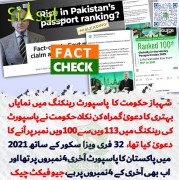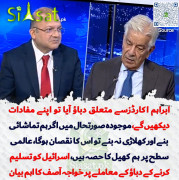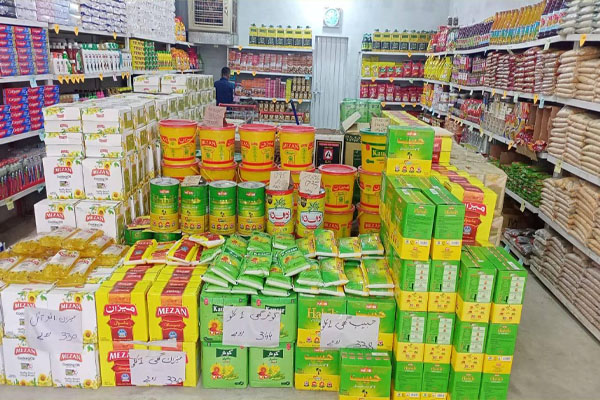Iran goes to Pakistan with Chabahar link plan
As New Delhi complied with US sanctions on Iran and stopped buying crude oil from the Islamic Republic this month, Tehran responded by offering to connect its Chabahar Port with Gwadar Port of Pakistan.
India is concerned over the proposal that Iranian Foreign Minister Javad Zarif mooted during his visit to Pakistan late last week. Zarif proposed to connect Iran's Chabahar Port with the Gwadar Port, which was developed by China on the south-western coast of Pakistan.
New Delhi has been investing in Chabahar Port on the south-eastern coast of Iran as it would give India a sea-land access to Afghanistan and Central Asia, bypassing Pakistan, which has been playing spoilsport to initiatives for connectivity between South Asia and Central Asia. The Chabahar Port's strategic importance for India grew further after Pakistan handed over the control of its Gwadar Port to China.
Sources told DH that the Iranian foreign minister's proposal to link the Chabahar Port with Gwadar Port of Pakistan appeared to be Tehran's response after New Delhi had to completely stop importing crude oil from the Islamic Republic.
New Delhi is concerned over the prospect of Pakistan and China expanding footprints on Chabahar Port if it is connected with Gwadar Port.
What also made New Delhi worried is the possibility of the Chabahar Port being linked to the Belt and Road Initiative (BRI) of China if it is connected with the Gwadar Port — the end point of the China-Pakistan Economic Corridor (CPEC).
New Delhi has stayed away from the BRI, as the CPEC, linking Xinxiang in China and Gwadar Port of Pakistan, passes through parts of Kashmir that India has been claiming as its own and accusing Pakistan of illegally occupying.
Zarif was in New Delhi on May 14 when he met External Affairs Minister Sushma Swaraj and discussed with her ways to continue export of crude oil from Iran to India despite the United States' sanctions on energy exports from the country. New Delhi remained non-committal.
Iran was the third-largest oil supplier for India after Iraq and Saudi Arabia. India bought 23.6 million tonnes of oil from Iran in 2018-19 financial year.
India, however, has been slashing its energy import from Iran after the US on November 4, 2018, reimposed economic sanctions on Iran, particularly targeting the energy exports from the West Asian nation. The sanctions came into effect almost six months after President Donald Trump's administration in Washington DC decided to withdraw from the deal that the US, four other permanent members of the United Nations Security Council and Germany as well as the European Union had inked with Iran in 2015 to end the row over the controversial nuclear programme of the Islamic Republic.
The Trump administration earlier this month ended the waivers, which it had granted to India, China and six other nations last year to enable them to continue to import crude oil from Iran without making their entities liable to US sanctions.
The US withdrew the waivers to step up pressure on India, China and other nations to completely stop importing crude oil from Iran.
Harsh Shringla, New Delhi's envoy to the US, told a news conference in Washington DC on May 23 that India had completely stopped buying crude oil from Iran after withdrawal of the waiver the American government granted to it earlier.

As New Delhi complied with US sanctions on Iran and stopped buying crude oil from the Islamic Republic this month, Tehran responded by offering to connect its Chabahar Port with Gwadar Port of Pakistan.
India is concerned over the proposal that Iranian Foreign Minister Javad Zarif mooted during his visit to Pakistan late last week. Zarif proposed to connect Iran's Chabahar Port with the Gwadar Port, which was developed by China on the south-western coast of Pakistan.
New Delhi has been investing in Chabahar Port on the south-eastern coast of Iran as it would give India a sea-land access to Afghanistan and Central Asia, bypassing Pakistan, which has been playing spoilsport to initiatives for connectivity between South Asia and Central Asia. The Chabahar Port's strategic importance for India grew further after Pakistan handed over the control of its Gwadar Port to China.
Sources told DH that the Iranian foreign minister's proposal to link the Chabahar Port with Gwadar Port of Pakistan appeared to be Tehran's response after New Delhi had to completely stop importing crude oil from the Islamic Republic.
New Delhi is concerned over the prospect of Pakistan and China expanding footprints on Chabahar Port if it is connected with Gwadar Port.
What also made New Delhi worried is the possibility of the Chabahar Port being linked to the Belt and Road Initiative (BRI) of China if it is connected with the Gwadar Port — the end point of the China-Pakistan Economic Corridor (CPEC).
New Delhi has stayed away from the BRI, as the CPEC, linking Xinxiang in China and Gwadar Port of Pakistan, passes through parts of Kashmir that India has been claiming as its own and accusing Pakistan of illegally occupying.
Zarif was in New Delhi on May 14 when he met External Affairs Minister Sushma Swaraj and discussed with her ways to continue export of crude oil from Iran to India despite the United States' sanctions on energy exports from the country. New Delhi remained non-committal.
Iran was the third-largest oil supplier for India after Iraq and Saudi Arabia. India bought 23.6 million tonnes of oil from Iran in 2018-19 financial year.
India, however, has been slashing its energy import from Iran after the US on November 4, 2018, reimposed economic sanctions on Iran, particularly targeting the energy exports from the West Asian nation. The sanctions came into effect almost six months after President Donald Trump's administration in Washington DC decided to withdraw from the deal that the US, four other permanent members of the United Nations Security Council and Germany as well as the European Union had inked with Iran in 2015 to end the row over the controversial nuclear programme of the Islamic Republic.
The Trump administration earlier this month ended the waivers, which it had granted to India, China and six other nations last year to enable them to continue to import crude oil from Iran without making their entities liable to US sanctions.
The US withdrew the waivers to step up pressure on India, China and other nations to completely stop importing crude oil from Iran.
Harsh Shringla, New Delhi's envoy to the US, told a news conference in Washington DC on May 23 that India had completely stopped buying crude oil from Iran after withdrawal of the waiver the American government granted to it earlier.

Iran goes to Pakistan with Chabahar link plan
As New Delhi complied with US sanctions on Iran and stopped buying crude oil from the Islamic Republic this month, Tehran responded by offering to connect its Chabahar Port with Gwadar Port of Pakistan.
www.deccanherald.com



































